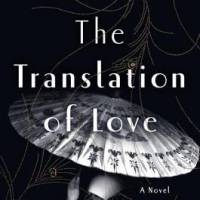Lynne Kutsukake's debut novel, "The Translation of Love," is a heady blend of detailed historical research and compelling storytelling. Set in postwar Tokyo during the U.S. Occupation, the novel follows an ensemble cast as they try to come to terms with their survival, personal loss and potential futures.
The Translation of Love, by Lynne Kutsukake
336 pages
Doubleday, Fiction.
Kutsukake, a third-generation Japanese-Canadian, focuses on characters that are too often treated in the abstract or excluded completely in other Occupation-era tales, and brings new understanding to the subject. There's Kondo, the schoolteacher trying to embrace a curriculum that directly contradicts the old one; Sumiko, who provides for her parents and sister by "entertaining" U.S. soldiers; Aya, a second-generation Japanese born in Canada, interred and deported with her father to a country she's never seen; and Matt, another second-generation Japanese-American, one of Gen. Douglas MacArthur's staff. Their stories intertwine as each searches for hope, meaning and lost loved ones in the rubble and alleys of the city.
Despite the title, this is no romance. Translation and miscommunication are at the heart of the novel, and the web of associations that builds as the story unfolds rests upon translated letters. Thousands of people — believing that democracy means access to the ruler — wrote to MacArthur, pleading for his intervention in their lives. Matt's job is to translate these, and the picture of a population taking its first tentative steps out from the under the cloud of authoritarian control is evocative. This is an eloquent, moving debut marred only by a lackluster, misleading title.


















With your current subscription plan you can comment on stories. However, before writing your first comment, please create a display name in the Profile section of your subscriber account page.